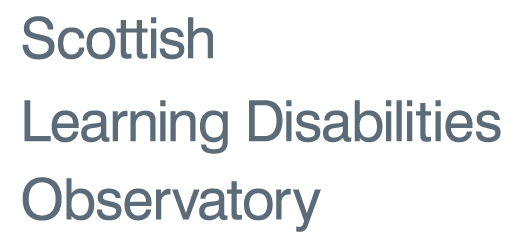Our Bodies, Our Rights: Identifying and Removing Barriers to Disabled Women's Reproductive Rights in Scotland

Background
The sexual rights and citizenship of women with learning disabilities have been overlooked, historically, in comparison with non-disabled women. The reproductive rights and health of women with learning disabilities have been identified as being of central importance to addressing health inequalities of women with learning disabilities in the Keys To Life. Women with learning disabilities, whilst having their sexual health rights recognised in the United Nations Convention on the Rights of Persons with Disabilities and in the Equalities Act (2010), have unequal access to sexual health information, sexual health screenings, and information about reproductive and maternal health as well as parenting and relationships. These gendered forms of health inequalities, experienced by women with learning disabilities, have far reaching impacts on health, wellbeing and inclusion. Women with learning disabilities face stigma and discrimination when it comes to pregnancy and reproduction and often have very poor and distressing experiences of services.
Aims and Objectives
There is a need for qualitative research that explores the reproductive health of women with learning disabilities in Scotland and how this impacts on wellbeing, experiences of sexual and maternal health and pregnancy. Engender Scotland (https://www.engender.org.uk) is a women’s activist and equality organisation, funded by the Scottish Government, and seeks to explore the varied forms of gender inequality in Scotland. Engender has begun to explore the reproductive journeys of disabled women in Scotland and has worked collaboratively with the SLDO and women with learning disabilities. Through focus groups and interviews with women with learning disabilities the project aims to better understand the reproductive health inequalities they face.
What we did
We undertook qualitative research methods, focus groups and an online qualitative survey, with women learning disabilities in Scotland to investigate reproductive health inequalities in collaboration with Engender Scotland. 21 women, with learning disabilities, responded to the easy read survey and 12 women, with learning disabilities, from central Scotland participated in the focus groups. Participants ranged from age 18-78, this allowed us to capture experiences of puberty, menstruation and pregnancy through to parenting and menopause and enabled a life course approach to understanding reproductive rights. The project had a national scope and disabled women from all over Scotland were included in the research process and data collection.
What we found
The main findings identified significant barriers and inequalities encountered by women with learning disabilities throughout their reproductive lives and in every area of their reproductive health. Underlying these experiences was a lack of equal and accessible education in schools that supported girls with learning disabilities to understand their menstrual and sexual health. Participants reported never having been included in sexual health education at school and only being given informal and inconsistent information and education about their menstrual health and wellbeing. The findings identified that these reproductive health inequalities place women with learning disabilities at greater risk of poor reproductive health outcomes as a result of inequality in education and negative social stigmas associated with learning disability and sexuality. Similarly, participants reported a lack of knowledge and education on menstruation, menstrual products, family planning, sexually transmitted infections, contraception, pregnancy, birthing and menopause. The project found, overwhelmingly, that women with learning disabilities experienced the removal of their children into permanent care and experienced significant emotional and mental distress as a result.
The findings from the project identify key areas for social and healthcare improvement in the lives of disabled women and a need for significant health and social care responses in order to fulfil women with learning disabilities’ human rights, their access to comprehensive sexual health care and social care in parenting gender-based violence and wellbeing.
An additional research report on this project can be viewed below.
More information about the project and its findings from the SLDO and University of Glasgow and Engender Scotland’s policy report, can be accessed at: https://www.engender.org.uk/content/disabled-women/
Page updated 4 December 2018
